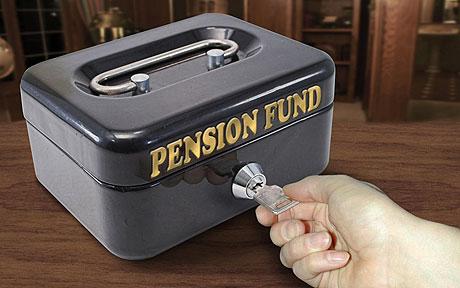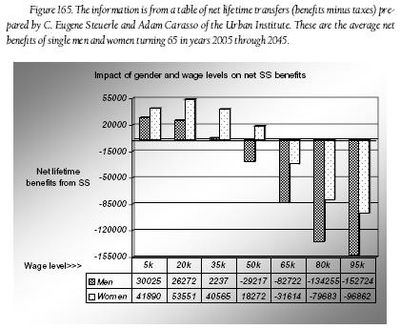
We don’t give Wall Street interests nearly enough credit for stealing public money to finance their gambling habits. They’ve been lusting after public monies for years, and now they’re having their way with pension funds. Big time.

Ever since a gaping loophole in the Employee Retirement Income Security Act of 1974 exempted public pensions from fiduciary oversight and disclosure requirements concerning the financial details of the beneficiary’s plan, elected officials were left to control the destinies of public pensions with the best interests of their constituents’ in mind. Understandably, that smirk arising from your face like a cynical phoenix from the ashes of the 2007-08 financial crisis is aptly justified. Sure, states were often caught illegally under-funding pensions. A cornucopia of states, counties, and cities even borrowed heavily against their constituents’ retirements to finance other budgetary concerns when times were still good and the prospects of repaying, even if delusional by any rational standards, seemed like a wise move to quickly shore up budgets. But when the Great Recession hit, pensions and public servants like teachers and firefighters became the scapegoats of Wall Street interests and their Tea Party bottom feeders in government.

While the blame game is being played, pensions are being decimated like a predator drone strike on an Afghani funeral procession. Taken from the banker’s playbook, fees have become the siphon from which money gushes out from the pockets of ordinary Americans into the coffers of Wall Street ripoff artists. Since many pension funds are entrusted to hedge funds and their scrupulously-attired managers, a fee structure becomes the basis on which business is transacted. The two and twenty fee scheme virtually guarantees Wall Street a winning stake in the Great Pension Fund Heist of the 21st Century.
Apart from consulting and other miscellaneous fees which drain a hedge fund managed pension, two and twenty means that the hedge fund manager gets two percent of the total assets value just for showing up – and 20 percent of all profits earned. What does this mean? Very possibly, that hedge funds wouldn’t be the pyramid scheme that they are today without public pensions doing all the hard work for Wall Street pharaohs. Warren S. Hersch reports that public pensions are the largest contributor to hedge funds valued $1 billion or more and represented more than $550 billion in combined capital. Additionally, public pension funds represent 29 percent of all capital allocated to hedge fund investments over $1 billion.
Wall Street really only does one thing well – and it’s not making money. It’s not losing money, either, but winning and losing billions and billions in boom and bust cycles undeniably earn Wall Street the silver and bronze medals at the financial Olympic games. What Wall Street does better than anyone else in the history of finance is to privatize its profits and to pass along its losses to the public sector. It takes the gold medal in this category every time. We’ve seen it with the Fed’s $16 trillion bail-out of Wall Street along with the smallish $700 billion TARP give-away after they trashed the economy.
And now, we’re seeing it again, almost in slow-motion – with fees, fraud, and propaganda – as Wall Street rob pensioners blind with the pliant assistance of our woefully elected. Thousands of families are being set up for a fall when they reach retirement age only to discover they’re well short of the means to enjoy their golden years; and when they’re forced to work till the day they die Grapes of Wrath style in the menial service industry, they’re going to think back on all the lies they’d been fed through the years and wonder how the hell they could have been so stupid as to take the word of a corporate-backed politician. If it isn’t bad enough that Wall Street executives have eluded prison terms and lynch mobs, we continually fail to recognize the sanity in removing them from our collective lexicon of heroes and saviors.
Leave a Reply